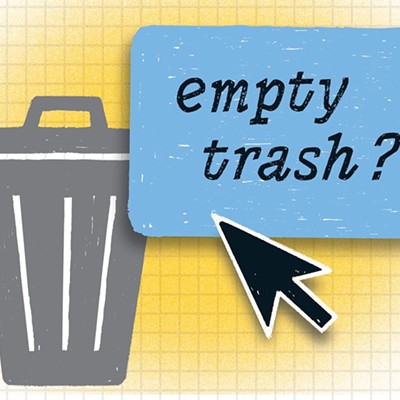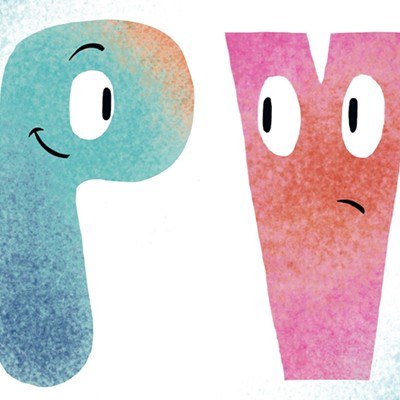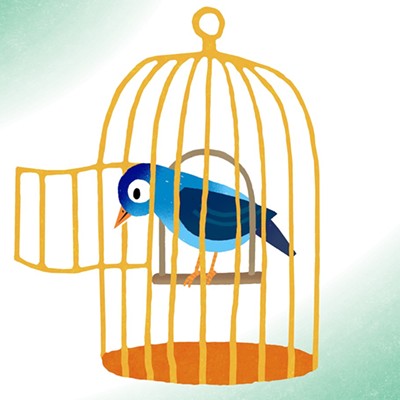Q Garbage human here. I've had herpes for about 15 years. The first five years, I was in a relationship with a guy who also had it. The last 10 years, I haven't been in a serious relationship. I've been a (rare, drunk) one-night-stand type of gal, and I don't usually tell the guy because, like, everyone has herpes. (I get that one in five isn't everyone, but if you count HSV-1? I've seen numbers as high as 80 percent.) Frankly, it seems about as significant as minimally contagious mild acne. I justify non-disclosure to myself these ways, even though I know it's not ethical. On the occasions where I have disclosed, I've been made to feel like a leper by dudes who 10 minutes before were begging me not to use a condom.
Which brings us to now. What I thought was a one-night stand has turned into a months-long affair, and I'm amazed to report I find myself liking and respecting this guy. (I know, I know: If I really respected him, I'd have told him before I ever knew I respected him). What do I do? I have to tell him. But how? Is there any justification for what I've done? Can I just say, "Oh man, I noticed a thing and went and got tested and guess what?" That just adds to the lie. There's no way I can have a relationship with this guy based on trust going forward, is there? I've fucked this up and I have to bail, don't I? Am I going to be alone for the rest of my life? —Deserves To Be Alone
A You're not a garbage human, DTBA. You didn't share something you should've—the fact that you, like upwards of 50 percent of everyone, have herpes—but weren't obligated to. The problem with not disclosing, as you now know, is that casual sex partners have a way of becoming potential long-term partners. And by the time you recognize someone's long-term potential, the stakes are so high that bailing looks like an easier option.
"We don't think DTBA needs to bail," Momo and Felix write in a joint email. "And we don't think she's destined to be alone for the rest of her life."
Momo and Felix are the co-creators of My Boyfriend Has Herpes (instagram.com/my_boyfriend_has_herpes), an account that has amassed more than 15,000 followers in just a few months. Using simple, direct prose and Momo's charming illustrations, Momo and Felix educate others about herpes while sharing the story of their relationship.
"Our stance is pro-disclosure, always, but we know this isn't possible for everyone living with HSV," say Momo and Felix. "Unfortunately, one of the significant pitfalls of [not disclosing early on] is the difficulty it adds to the potential of a long-term relationship. And while we don't agree with DTBA's choice to not disclose to her partners, we understand why she might have made those choices. The stigma against herpes is terrible."
Momo and Felix feel—and I'm with them—that you need to be completely honest with this guy, even if it means the relationship could end. But it might not end, DTBA. He might have a disclosure of his own to make—he could have herpes, too—or the relationship could end for other reasons. You've been dating this guy for only a few months, and he could decide to end things for reasons that have nothing to do with the disclosure you're about to make and/or your failure to make it sooner. Or you might learn something about him down the road that's a dealbreaker.
So how do you broach this? "She obviously cares about this person," write Momo and Felix. "She made a mistake and she wants to make it right. DTBA needs to acknowledge her actions (opting for non-disclosure) and their impact (putting her partner at risk without his informed consent). DTBA's partner may very likely feel betrayed or deceived. He might want to end the relationship, and his feelings would be valid. Unfortunately, all that DTBA can do is acknowledge her mistake, make herself vulnerable and accept his reaction."
Q I'm a 24-year-old bisexual female, and the new person I'm dating just disclosed their HSV-2 status. I really like them and was all set to get intimate with them. But their disclosure made me change my mind. They are understanding but sad. I feel terrible about it! They did the right, honest thing, and now they're getting punished for it. Have I perpetuated the stigma of having herpes because I'm scared of ending up in the "life is harder now" group? —Help A Reluctant Miss
A I shared your letter with Momo and Felix, HARM, and they wanted to respond to you individually. But first: Herpes is caused by two different viruses, HSV-1 and HSV-2. HSV-1 is commonly called "oral herpes" and HSV-2 is called "genital herpes," even though both are transmitted in similar ways—vaginal, anal and oral sex, as well as skin-to-skin contact—and both can cause sores on the mouth or genitals. Herpes is common: Some studies have found that more than two out of every three people have it. But most people who have herpes don't know they do—which means that you could already have herpes yourself, HARM.
"It's HARM's right to choose not to sleep with anyone for any reason," says Momo. "But I do think that she's perpetuating the stigma by rejecting someone just because they have HSV. I totally understand her concerns, and I had the same concerns before deciding to be intimate with Felix. But after doing my research and contemplating, I decided that I'd rather contract HSV than feed into the stigma. I don't expect everyone to share the same feelings as me, but that was my choice. Plus, if she walks away from this person and keeps dating, there's a good chance that a future partner might have HSV and not know it. So is she really taking less risk by not dating them?"
"Is HARM perpetuating the stigma against HSV? A bit," says Feliex. "But I think her feelings are super-understandable. It's important for people to educate themselves and take action toward dismantling the stigma, but to potentially take on the burden of living with the stigma is a huge leap. I don't know if being concerned about becoming a victim of the stigma is the same as perpetuating it. But while HARM fears that contracting HSV will limit her dating life in the future, if she walks away from a relationship with potential, then her feelings have already limited her dating life."












